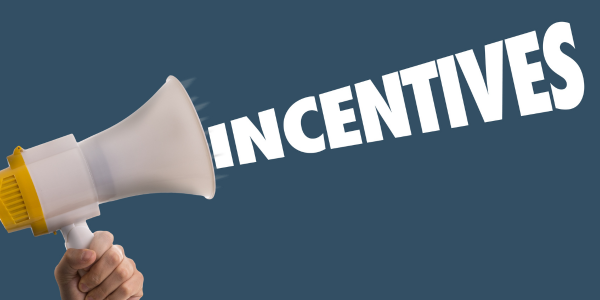UP TO THE MINUTE
Refining performance-based incentive plans for roofing companies

By Cotney Consulting Group.
Understand the role of incentive plans that motivate employees and align with the company's long-term goals.
In the competitive landscape of roofing, implementing an effective incentive plan for employees is crucial. However, the success of these plans hinges on their thoughtful design and execution. This article will explore robust strategies for designing performance-based incentive plans that motivate employees and align with the company's long-term goals.
Incentive plans are more than just rewards; they are strategic tools that drive business objectives and enhance productivity. A well-structured incentive plan can mean the difference between average and exceptional performance for roofing companies, where project outcomes significantly impact the bottom line.
Challenges of implementing incentive plans
The complexity of incentive plans can lead to issues if not correctly managed. The primary challenges include ensuring fairness, maintaining transparency and aligning the incentives with company goals without encouraging negative behaviors such as sacrificing quality for speed.
Key strategies for effective incentive plans
- Define clear objectives: The objectives of an incentive plan should be clearly defined and directly tied to the company's strategic goals. Whether it's improving quality, reducing safety incidents or enhancing customer satisfaction, each goal should have corresponding metrics that are understandable and attainable metrics.
- Ensure comprehensive measurement: Developing a trusted measurement process is vital. It's important to establish clear criteria for evaluating performance and ensure that these criteria are objectively measurable and unambiguously communicated to all employees.
- Balance short-term and long-term goals: While immediate rewards motivate quick wins, long-term goals help sustain growth and development. Consider integrating short-term incentives, like bonuses for individual project completion and long-term incentives, such as profit sharing or stock options, to balance motivations.
- Customize incentives: Tailor incentive plans to different groups within the company to address their specific roles and impact on the company's success. For instance, project managers might be rewarded based on project profitability and timeline adherence, while crew members might be incentivized based on safety records and workmanship quality.
- Promote teamwork: Design incentives that promote teamwork and collective success rather than individual performance alone. This approach helps prevent the silo effect where employees work in isolation, potentially to the detriment of other project aspects.
- Regularly review and adjust the plan: Incentive plans should not be static. Regular reviews allow adjustments based on what is or isn't working. This flexibility helps the company adapt to changing market conditions and business objectives.
Types of incentive plans
- Profit-sharing: While popular, profit-sharing needs to be carefully implemented in contracting environments. Transparency in financial reporting and a clear connection between individual efforts and profit outcomes are essential to make this plan effective.
- Discretionary bonus distributions: These can effectively reward exceptional employee contributions that standard metrics might not capture. However, the bonus criteria need to be transparent to avoid confusion and feelings of unfairness.
- Job-by-job incentive pay: This plan rewards employees based on the profitability of individual projects. It's crucial, however, to ensure that such a plan doesn't inadvertently lead to losses or compromise on quality by focusing solely on short-term gains.
Leveraging technology and expertise
- Utilize technology: Implementing software that tracks and analyzes performance metrics can significantly enhance the objectivity and transparency of incentive plans.
- Consult experts: Working with HR specialists or consultants who understand the nuances of incentive compensation can help you tailor a plan that fits the unique needs of a roofing business.
Conclusion
A well-crafted incentive plan is a powerful tool for motivating employees and driving company success. Roofing companies can foster a more engaged and productive workforce by setting clear objectives, ensuring fair measurement and regularly updating the plan in response to feedback and business changes. It's not just about rewarding the hard work; it's about strategically aligning that work with the company's overall goals and vision.
Learn more about Cotney Consulting Group in their Coffee Shop Directory or visit www.cotneyconsulting.com.



















Comments
Leave a Reply
Have an account? Login to leave a comment!
Sign In